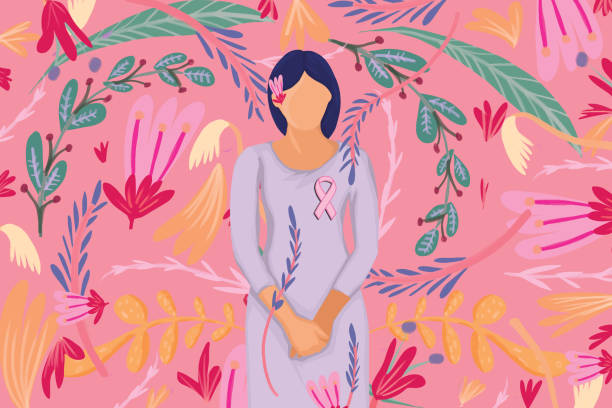
6 Must-Know Facts About Women’s Health
Women’s health is such an essential topic which encompasses not only physical well-being but also mental and emotional well-being. It is paramount to specifically pinpoint the unique health challenges that all women face at different points in their lives. From reproductive health to heart disease and mental health issues, all must be understood to create improved health outcomes for women.
Owing to advocacy movements increases in research, and global initiatives on health improvement, women’s health has received attention in recent years. The knowledge of unique facts about women’s health will guide them in better selections towards a healthy lifestyle. Here are six must-know facts about women’s health that every woman needs to know about for herself to be well.
Must-Know Facts About Women’s Health
Let’s begin:
Heart disease has become the number one cause of death in women.
Perhaps one of the most alarming facts about women’s health is that heart disease is the first worldwide cause of death in women. In fact, most people do not see it as a disease for women because they have been taught that men are more prone to heart disease. However, researchers have found that women stand at exactly the same risk as men. Moreover, women usually present with symptoms of heart disease differently from those experienced by men; hence, diagnosis usually becomes difficult in its early stages.
Less apparent symptoms in women include nausea, shortness of breath, or pain in the back and neck, instead of the more common chest pain. Women need to observe their cardiovascular health be on a healthy diet, exercise regularly, and refrain from smoking. Regular check-ups with a healthcare provider also help to identify possible early signs of heart disease, and therefore, present more opportunities for prevention and treatment.
Women Are More Susceptible to Mental Health Disorder Problems
Mental health is as crucial to a woman’s general health as it is in the case of her male counterpart. Women are more statistically prone to mental health disorders, among which are depression, anxiety, and post-traumatic stress disorder than men. According to the World Health Organization, depression is more common in women than in men, and its prevalence rises significantly during periods of hormonal change. Change is a big phenomenon in a woman’s life when she is pregnant, immediately after giving birth, or when she is becoming menopausal.
One of the interesting facts regarding women’s health is that psychiatric disorders often suffer from an underdiagnosis or even misdiagnosis in women. Social, biological, and psychological factors are responsible for the increased incidence of psychiatric disorders among women. If you have been feeling sad, anxious, or emotionally unbalanced for a long time, you must visit a counsellor or therapist.
Reproductive Health Is More Than Just Fertility
Women’s reproductive health is in many ways considered to be merged only with fertility, but it is much more than that. Reproductive health involves menstrual health, sexual health, and the prevalence of diseases such as PCOS, endometriosis, and menopause. These make one experience a vast range of symptoms including the more severe chronic pains, tiredness, and experiencing the troubles of infertility.
Because most reproductive health concerns are stigmatized or they just lack education, most of the reproductive issues are left undiagnosed for several years. Women must be well aware of their bodies, know when to consult a doctor if something does not feel well, and attend regular follow-ups by a gynaecologist, so whatever may have been growing has a proper chance to be diagnosed early.
Bone Health Is of Great Concern
As women age, there are chances of developing osteoporosis and other bone disorders. Another significant aspect of the health of women is that as soon as they cross the age of menopause, due to a sharp decline in estrogen levels, they lose bone density rapidly and, therefore, are at a higher risk for fractures or osteoporosis.
Women should take preventive measures in advance by adopting diets rich in calcium, and vitamin D, and weight-bearing exercises. Regular tests of bone density will further help diagnose the ailment of osteoporosis in the initial stages. Once you are entering or have passed menopause, you must, therefore, consult your healthcare provider to ensure future safety.
Women Face Specific Implications for Specific Types of Cancers
Others are more prevalent among the female population, including breast, cervical, and ovarian cancers, with breast cancer being the most common among women in the world. Most of these risk factors are related to family history, lifestyle choices, or hormonal balances; once women know what these risk factors are, they can take preventive measures against them in different forms.
Screening tests like mammograms and Pap smears for early detection of cancer contribute towards a patient receiving appropriate treatment. Self-examination and scrutiny of changes within one’s body are very important to identify signs that might be symptoms of cancer. If there is a personal or family history, it would be prudent to discuss the possibility of genetic testing and additional screening with your doctor.
Hormonal Health influences all Stages of Life
Women experience an entire cycle of life in terms of health from the onset of puberty, going all the way up to menopause and beyond. During all of these stages, hormones play a significant role. Hormonal imbalance leads to a gamut of problems ranging from mood swings to gaining weight, break-out of acne, and problems relating to reproduction.
Many of the conditions mentioned above including thyroid issues, PCOS, and hormonal changes in pregnancy or during menopause, can be problematic for her. A balanced diet, exercise, and reduced stress are straightforward ways to manage hormonal health. If you are suffering from symptoms of hormonal imbalance, you should approach a healthcare provider to help you control these issues better.
Final Words
Understanding these six crucial facts on women’s health empowers women to take charge of their well-being. The knowledge of heart disease, mental health, female reproductive, and hormonal health challenges forms the foundation for a healthy lifestyle.
Women’s health is a multifaceted concern to which attention, education, and proactive management are encouraged. With attention to information and adherence to regular check-ups and screenings, women can downsize and diminish the significant risks of major health concerns and keep themselves healthier and happier.
Also, see:
World University Rankings 2025: Only 1 Pakistani University Listed Among Top 500








